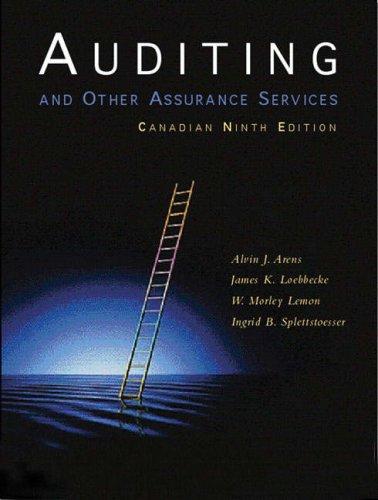Question
According to the IRS, individuals filing federal income tax returns prior to March 31 received an average refund of $1,065 in 2018. Consider the population
According to the IRS, individuals filing federal income tax returns prior to March 31 received an average refund of $1,065 in 2018. Consider the population of "last-minute" filers who mail their tax return during the last five days of the income tax period (typically April 10 to April 15).
a. A researcher suggests that a reason individuals wait until the last five days is that on average these individuals receive lower refunds than do early filers. Develop appropriate hypotheses such that rejection of H0 will support the researcher's contention.
H0: is _____
Ha: is _____
b. For a sample of 400 individuals who filed a tax return between April 10 and 15, the sample mean refund was $910. Based on prior experience a population standard deviation of $1,600 may be assumed. What is the p-value (to 4 decimals)?
_____
c. Using =.05, can you conclude that the population mean refund for "last minute" filers is less than the population mean refund for early filers?
_____
d. Repeat the preceding hypothesis test using the critical value approach.
Using =.05, what is the critical value for the test statistic (to 3 decimals)?
_____
Enter negative value as negative number. State the rejection rule: Reject H0 if z is ______ the critical value.
Using the critical value approach, can you conclude that the population mean refund for "last minute" filers is less than the population mean refund for early filers?
_________
Step by Step Solution
There are 3 Steps involved in it
Step: 1

Get Instant Access to Expert-Tailored Solutions
See step-by-step solutions with expert insights and AI powered tools for academic success
Step: 2

Step: 3

Ace Your Homework with AI
Get the answers you need in no time with our AI-driven, step-by-step assistance
Get Started


